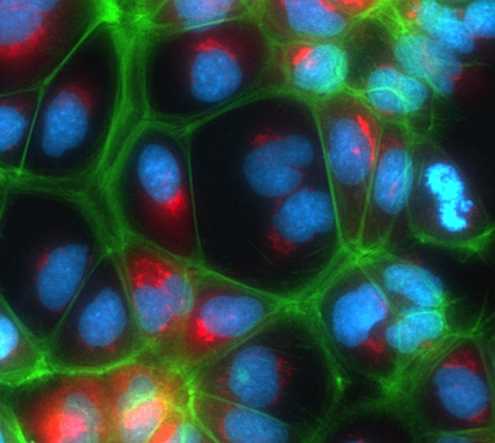Functional Human Liver Cells Grown in the Lab

Complete the form below to unlock access to ALL audio articles.
In new research an international research team led by The Hebrew University of Jerusalem describes a new technique for growing human hepatocytes in the laboratory. This groundbreaking development could help advance a variety of liver-related research and applications, from studying drug toxicity to creating bio-artificial liver support for patients awaiting transplantations.
The liver is the largest internal organ in the human body, serving as the main site of metabolism. Human hepatocytes – cells that comprise 85% of the liver – are routinely used by the pharmaceutical industry for study of hepatotoxicity, drug clearance and drug-drug interactions. They also have clinical applications in cell therapy to correct genetic defects, reverse cirrhosis, or support patients with a liver-assist device.

Regrettably, while the human liver can rapidly regenerate in vivo, recognized by the ancient Greeks in the myth of Prometheus, this capability to proliferate is rapidly lost when human cells are removed from the body. Thus far, attempts to expand human hepatocytes in the laboratory resulted in immortalized cancer cells with little metabolic function. The scarce supply of human hepatocytes and this inability to expand them without losing function is a major bottleneck for scientific, clinical and pharmaceutical development.

